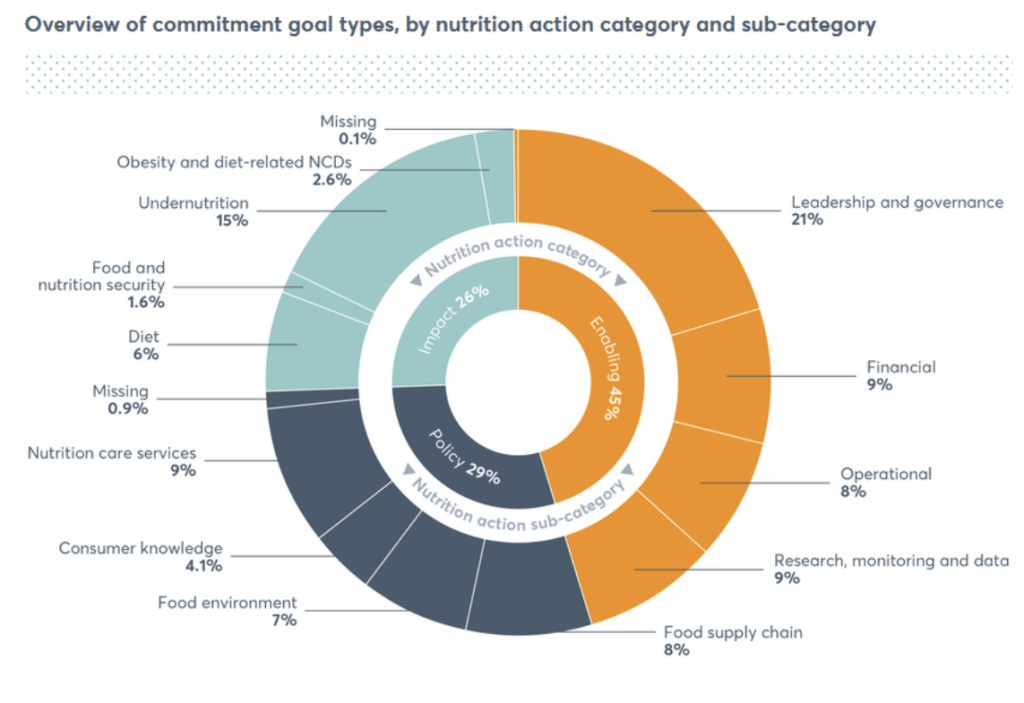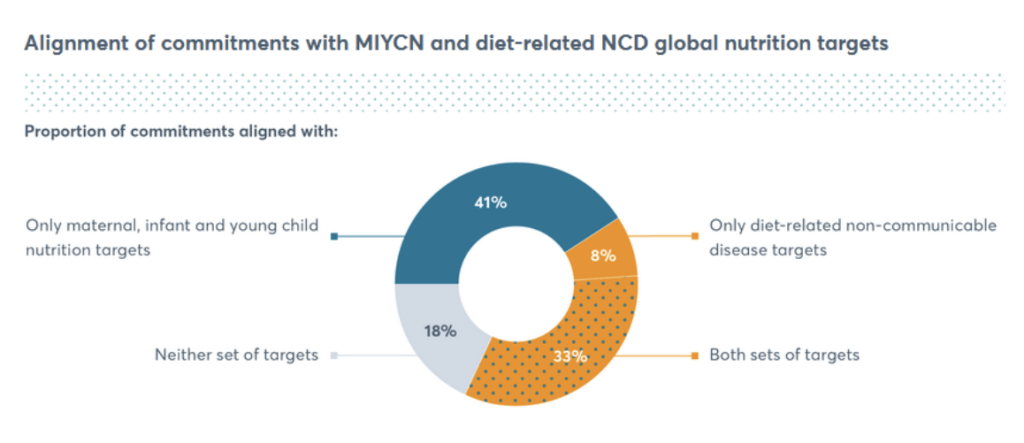Highlights
The global nutrition crisis displays worrying trends across every form of malnutrition, from hunger to obesity. 768 million people were affected by hunger in 2021, and 3.1 billion in 2020 unable to afford a healthy diet. Almost a third (29.3%) of the world’s population, 2.3 billion people, were moderately or severely food insecure in 2021, up from 25.4% before the covid-19 pandemic.
At the same time, obesity and diet-related non-communicable diseases (NCDs) are on the rise and at epidemic levels – around 40% of all adults and 20% of all children are now overweight or obese.
Policy interventions to date are failing to reverse these trends, while conflict around the world – including the recent war in Ukraine – and the impacts of climate change, which are key drivers of increases in malnutrition, continue unabated.
2021 was named the Nutrition Year of Action, with a concerted effort to mobilise monumental action across the world. The year culminated in the Tokyo Nutrition for Growth (N4G) Summit where stakeholders stepped up to make an unprecedented level of commitments to improve global nutrition. As part of these efforts, the Global Nutrition Report (GNR) was endorsed by stakeholders to create the world’s first independent nutrition accountability framework (NAF) to ensure commitments – including and beyond N4G – can deliver transformative change.
The NAF enables all actions to improve nutrition across the world to be captured as SMART commitments that can be consistently monitored and reported on publicly.
The report highlights a remarkable number of commitments registered in the NAF and a concerted effort from stakeholders to make those commitments SMART. Low- and lower-middle-income countries stand out in particular, with all stakeholders stepping up to commit over US$42.6 billion. Overall, the goals that are set out in commitments show strong support to leadership and governance and for addressing undernutrition, and a significant proportion of commitments are aligned with key global nutrition targets on maternal, infant and young child nutrition.
However gaps are identified in some critical areas; few goals are focused on improving food and nutrition security, and a relatively low proportion of commitments focus on poor diets or obesity and diet-related NCDs.
The Nutrition Accountability Framework
For the first time, all actions for nutrition can be accounted for and monitored, transparently and consistently. This allows to understand what action is being taken and by whom, what is working, and where gaps in action remain so that efforts to improve nutrition in all countries can be made increasingly strong and more impactful.
The NAF comprises a range of tools:
-
The NAF Platform: A central, online, publicly available platform for stakeholders to sign up, register and, later, to report on the progress of their commitments.
-
The Nutrition Action Classification System: A classification system that identifies the type of action taken.
-
The Nutrition Action SMARTness Index: A ranking system that enables assessment and reporting of the SMARTness of commitments.
-
The NAF Commitment Tracker: An online, interactive platform for making all data on commitments publicly available.


Key recommendations
Among the key recommendations, the report emphasises the need for a far greater attention on food security that truly includes nutrition security in commitment-making. Diet quality should be screened when assessing food security interventions, in order to equitably address hunger and diet-related diseases.
It also recommends transformative policies for food systems to ensure universal access to healthy, affordable and sustainably produced food. They include crop diversification and improving the nutrient profile of products through reformulation and fortification, through to subsiding school meals and regulating labelling, marketing and advertising practices.
| Year of publication | |
| Publisher | Global Nutrition Report |
| Geographic coverage | Global |
| Originally published | 13 Jan 2023 |
| Knowledge service | Metadata | Global Food and Nutrition Security | Nutrition | Lower middle income countryHealthy diet |
| Digital Europa Thesaurus (DET) | malnutritionObesitypolicymakingaid policyfinancing |

Login (or register) to follow this conversation, and get a Public Profile to add a comment (see Help).